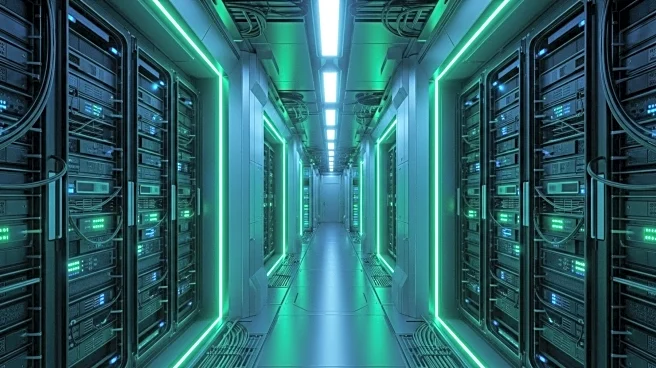What's Happening?
Healthcare organizations are increasingly focusing on modernizing their data centers to accommodate the growing demands of data management and technological advancements. The industry, which encompasses various subsectors such as medical research, home health services, and post-acute care, is witnessing a shift towards integrating artificial intelligence (AI) capabilities to enhance clinical workflows and improve patient outcomes. This evolution necessitates a reevaluation of existing data center infrastructures to ensure they can support new technologies and strategic goals. The adoption of AI-powered solutions is prompting healthcare providers to consider accelerated modernization timelines, balancing legacy systems with newer solutions to meet the demands of advanced technologies.
Why It's Important?
The modernization of data centers in healthcare is crucial for maintaining operational effectiveness and ensuring secure access to electronic health records (EHR) and other necessary systems. As healthcare organizations strive to improve patient care, the ability to efficiently manage and utilize vast amounts of data becomes increasingly important. The integration of AI and other advanced technologies can lead to better clinical collaboration and improved patient outcomes. However, this transition also poses challenges, as organizations must navigate the complexities of legacy systems and the need for skilled IT personnel capable of managing diverse platforms. The successful adaptation of data centers can significantly impact the healthcare industry's ability to deliver high-quality care and maintain data security.
What's Next?
Healthcare organizations are expected to continue exploring modern virtualization and hypervisor strategies to meet their business needs. As the industry evolves, there will likely be increased investment in data center modernization to support AI capabilities and other technological advancements. Organizations may need to reassess their IT staffing requirements to ensure they have the expertise necessary to manage complex infrastructures. Additionally, the ongoing scrutiny regarding the privacy of medical records will remain a critical consideration as data centers evolve. The focus on modernization is likely to drive further innovation in healthcare technology, potentially leading to new solutions for improving patient care and operational efficiency.
Beyond the Headlines
The shift towards modern data centers in healthcare highlights broader ethical and legal considerations, particularly concerning the privacy and security of patient data. As organizations adopt new technologies, they must ensure compliance with regulations and address potential vulnerabilities in data management. The modernization efforts also reflect a cultural shift within the industry, as healthcare providers increasingly recognize the value of technological innovation in enhancing patient care. This transition may lead to long-term changes in how healthcare services are delivered, with a greater emphasis on data-driven decision-making and personalized care solutions.










